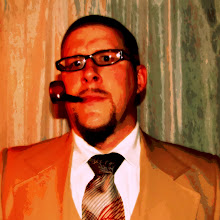
Have you ever seen a Hooters commercial? Their slogan is "delightfully tacky yet unrefined". Perhaps "
blatantly sexist and objectifying" would be a little more accurate slogan. From what I can ascertain you are likely not going to see a male server at Hooters. What you are going to see is a women, and their... assets. I never thought I'd be advocating for the P
uritanesque uniforms of Bob Evans during the 1980's, but I am. I've eaten a Hooters once in my life. It was my senior year in high school and a female classmate had recently been hired at the downtown Cleveland location. While doing some record shopping in
Cleveland my two mates suggested going to Hooters to have dinner because Tiffany was working there and she could "give us the hook up". Eating for less was always a
practice I tried to be involved in, and given I was hungry and Hooters was close by I obliged. I did not know what I was in for.
We got to Hooters shortly thereafter and it didn't take me long to feel terrifically awkward and uncomfortable. As we entered the restaurant I quickly learned why the restaurant was named Hooters. It became apparent that their was a strict uniform policy and I was also able to
surmise the company's hiring practices. As an eighteen year old male, I cannot say that there weren't a few physically appealing waitresses there, but I felt horrible. As we were shown to our table, I was rapidly losing my appetite. I just felt sad for the women working there. I was not judging them, but it just made me feel empathy for what they were doing to make a buck and likely what they faced in terms of the
predominately male patrons and the male manager. their were being objectified and everyone knew it. I don't think I led a particularly innocent life, but I had never really seen sexism so
blatantly portrayed in front of me. I kept thinking about a scenario where both of my sisters were working at Hooters and envisioned how they would likely be disrespected as part of their job; dealing with come-
on's and
innuendo shift-after-shift, day-after-day.
I ordered without looking up from my menu. I ate quietly staring intently at my plate. If I would have driven I would have left. I took most of my wings home. I couldn't eat. I was out of my element and I felt like a
chauvinist just for sitting in the restaurant. I've never experienced a more uncomfortable meal and I have never eaten at a Hooters since. I hope most women wanting to work in the food service industry can make a good wage elsewhere and with a reasonable uniform.
 In class last week, we watched the movie Freedom Writers. I had not seen the film prior to this and I thought it would be a lesser version of Dangerous Minds (not that I thought that was a very good film). I was also unaware that the film was based on a true story. In the end I found the film to be a pretty inspiring tale of strength and perseverance. I was compelled to do a little research on the actual Freedom Writers and their teacher Erin Gruwell and I came away even more impressed and with a great respect for the hard work and dedication the group invested in one another.
In class last week, we watched the movie Freedom Writers. I had not seen the film prior to this and I thought it would be a lesser version of Dangerous Minds (not that I thought that was a very good film). I was also unaware that the film was based on a true story. In the end I found the film to be a pretty inspiring tale of strength and perseverance. I was compelled to do a little research on the actual Freedom Writers and their teacher Erin Gruwell and I came away even more impressed and with a great respect for the hard work and dedication the group invested in one another.














